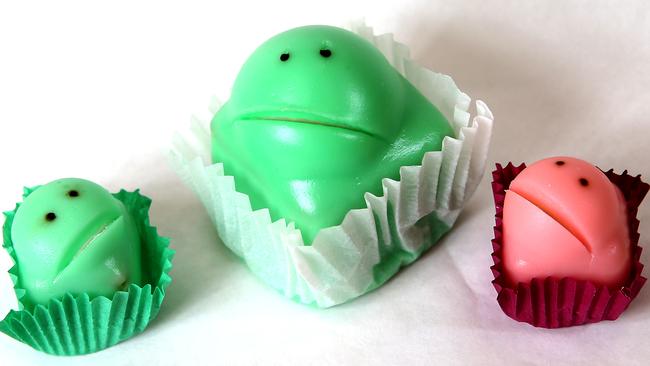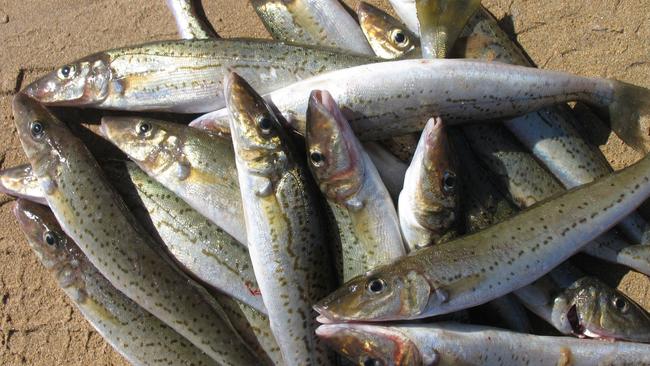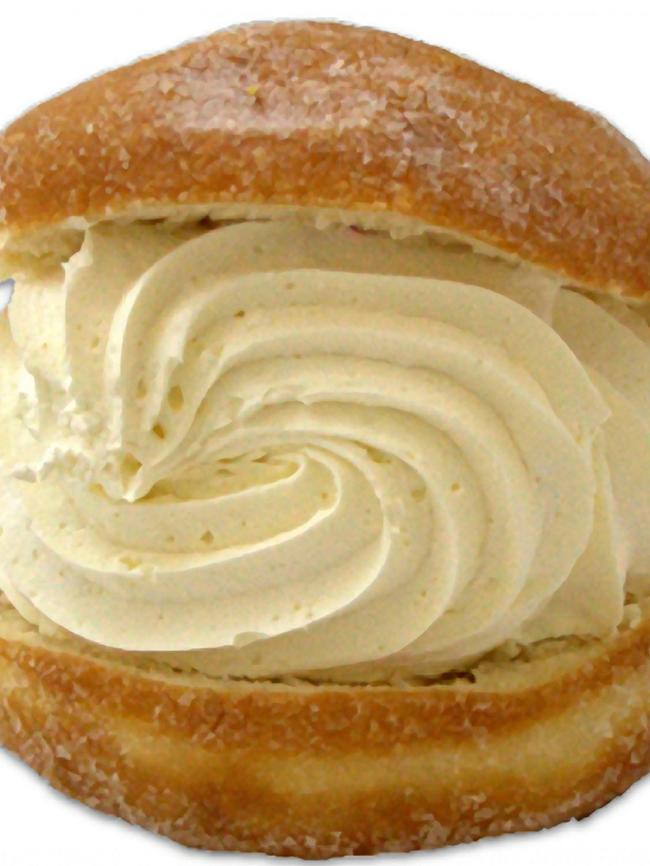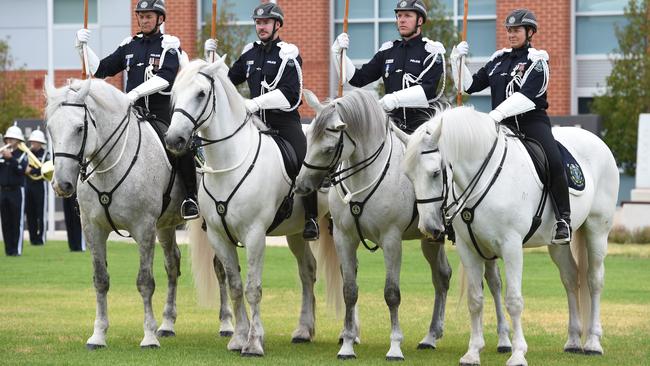Double-cut roll is one of 44 South Australian words now included in the Australian National Dictionary
HEY shackie, let’s go catch some KG this weekend — we can pop past the deli for a double-cut roll, but best keep an eye out for those sticker lickers.
- How Tony Abbott contributed to the Aussie vocabulary
- ‘Yaaas’ is the latest addition to the dictionary
- Amazeballs! YOLO makes the Oxford Dictionary
- 30 ways you know you’re a South Australian
“HEY shackie, let’s go catch some KG this weekend – we can pop past the deli for a double-cut roll, but best keep an eye out for those sticker lickers.”
If you can understand all that, then congratulations — you truly speak South Australian.
“Shackie” – a person who lives in a shack – and “KG” aka a King George whiting, are among 44 distinctly South Australian words that were this week added to the Australian National Dictionary.
The commonly used word, “deli” – a corner shop selling groceries and general goods – is also South Australian, as is the term “sticker licker” meaning a parking inspector.
And if you have never eaten a double-cut roll, you’re missing out on a good thing, according to Goodwood Bake House owners Vivian and Louis Langanis.
They have owned the bakery for 21 years and say double-cut rolls – a large roll cut twice for double the filling - are as popular as ever.
“People come from Melbourne and do the trade shows at the (Adelaide) Showground, and we get inundated,” Mrs Langanis said.
“Even considering people have become more health conscious, wanting wraps and things, they still like the rolls because they know they are baked and cut fresh, and are a sustaining lunch.”
Bakery roll maestro Natasha Stewart, 26, was not familiar with all of the newly included SA words, but said she used the word double-cut “a lot”.
“We still have people who give us this look like, ‘what on earth are you talking about?’ when we ask if they want a single or a double cut,” she said. “Especially people from interstate. Usually they do get the double cut once we explain what it is.”
In total, 6000 new Aussie words have been included in the second edition of the Australian National Dictionary, including words from more than 100 indigenous languages.
It is the first comprehensive update of the dictionary since 1988, now containing 16,000 words and phrases unique to Australia.
State of our language
THEY are words and phrases South Australians use without thinking every day. Now 44 entries coined in our state have been added to the Australian National Dictionary — which now has 16,000 in total – in its first comprehensive update since 1988.
Barossa Deutsch: A form of German spoken especially in the Barossa Valley area of South Australia, descended from the Brandenburg dialect of early German settlers; the culture and traditions associated with this.
Bungum worm: A very large beach worm, Australonuphis teres, used as bait.
Commemoration Day: Proclamation Day.
Deli: A corner shop; a small local shop that sells a mix of groceries and general goods.
Dinger: A slingshot; a shanghai.
Dodge tide: A change of tide in which the water level remains stationary instead of rising and falling.
Donkey (noun): A lift on a bicycle or a horse etc. that is ridden by another.
Donkey (verb): To carry (a passenger) on a bicycle or a horse etc.
Double-cut roll: A bread roll cut horizontally three times to allow two layers of filling.
Early minute: Permission to leave (a classroom, school, workplace, etc.) before the usual time; an opportunity to do so.
Echo: A small bottle of beer whose price includes a deposit on the cost of the bottle itself, and which is refundable when the empty bottle is returned to a collection depot.
Emu crossing: A road crossing near a school designed for the safe passage of schoolchildren, marked by red and white striped posts and red ‘children crossing’ flags.
Fourtrella: A form of betting on horseraces etc. in which the winners of four specified races must be chosen; a quadrella.

Frog cake: Proprietary name. A small cake with usually green icing and a top that resembles a frog’s face.
Gilja: A small tree, Eucalyptus brachycalyx, of southern South Australia and southern Western Australia.
Goolwa cockle: An edible marine bivalve, Plebidonax deltoides, often used as bait; a pipi.
Goonya: A white person.
Homette: A small single-storeyed, and usually semi-detached, house.
Hundred: A subdivision of land, originally approximately 100 square miles.
Kaike: A throwing spear.

KG: King George whiting.
Kirra: A boomerang.

Kitchener bun: A sugared doughnut usually filled with cream and jam.
Koala crossing: A school pedestrian crossing with flashing lights.
Nobs: A syndicate of wealthy landowners who formed the Princess Royal Mining Company in the 1840s with the aim of securing land for copper mining. Often used in the pair ‘nobs and snobs’. See ‘snobs’.
Nunga: An Aboriginal person of southern South Australia.
Nunga court: A division of the magistrates court that allows involvement of the
Aboriginal community in the trial and sentencing of an Aboriginal person.
Playmander: (In State elections in South Australia) the practice of drawing electoral boundaries to favour rural over urban electorates.

Police grey: A grey horse ridden by a member of the mounted police.
Pooled lunch: A function at a church, club, etc., to which people bring food to be shared.
Proclamation Day: 28 December, the anniversary of the proclamation of South Australia’s status as a province of Britain in 1836.
Sausage: A stick of explosive used in opal mining.
Shackie: A person who lives in a simple dwelling, often in a remote location or near the sea, and often on Crown land. (SA shares this term with Tas. and WA)
Snobs: The class of tradespeople and retailers. See ‘nobs’.
Spoggy: A sparrow.
Sticker licker: A parking inspector.
Taralgi: A freshwater fish, Macquaria colonorum, of south-eastern Australia.
Tarki: A freshwater fish, Macquaria ambigua, of eastern Australia; golden perch.
Tomboy stitch: French knitting.
Trading table: A charity stall where donated goods are sold.
Trombone: Any of several varieties of pumpkin with a pear-shaped body and long curved neck, resembling the shape of a trombone.
Tukari: A freshwater fish, Nematalosa erebi, widespread in mainland Australia.
Wilyaru: (In traditional Aboriginal culture) a fully initiated man.
Winna: A large spear.
